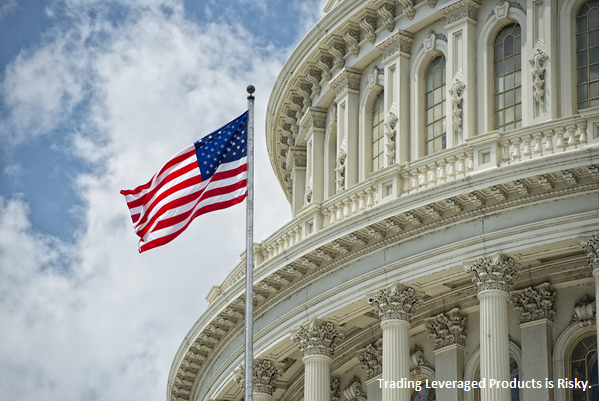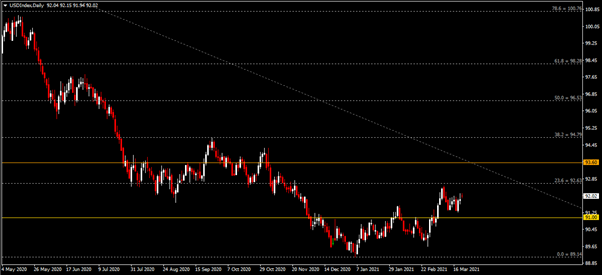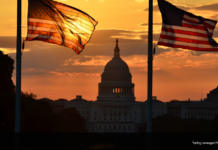In four days ( March 25 ), US President Biden will hold his first official press conference since taking office; the specific time is to be determined. March 25 will be the 64th day of Biden’s presidency. The market basically expects Biden to speak on issues such as vaccines, infrastructure plans, and the southern border.
President Biden said last week that since January 20, the United States has received 100 million doses of the vaccine, and 65% of senior citizens (65 years and older) have received at least one dose. In this regard, he maintains a cautiously optimistic attitude. Although the United States is expected to achieve its vaccination targets ahead of schedule as the supply of vaccines accelerates at the end of March, Biden said that “it is not time to relax vigilance.” In the past week, the number of new infections every day in many states in the United States showed signs of increasing again. Among them, the number of new infections in Michigan hit a single-day high last Wednesday, with 3,164 cases. Its 7-day average exceeded 2,500 cases. In addition , the state’s hospitalization rate also recorded an increase of 24% last week, and the lagging mortality rate may rebound again in the next few weeks. People’s relaxation of epidemic prevention measures and commercial restrictions, prison outbreaks, and the spread of mutant virus strains are the main factors for the rebound of infections. According to research assistant professor Josh Petrie, it takes about 1.5 months from the double-dose vaccine to the realization of immunization. Therefore, people must continue to comply with epidemic prevention measures and avoid unnecessary social contact, as the virus spreads faster than the human body reaches immunity. In addition , the market will also pay attention to whether the Biden government will relax travel restrictions in mid-May, including restrictions on the borders of Mexico and Canada, as well as restrictions on inbound international travel to the United Kingdom, Europe and Brazil.
Biden may express his views on the $2 trillion infrastructure plan. In the United States, the imperfections of its infrastructure, including roads and power grids, not only do not help economic development, but even reduce the disposable income of each American family by 3,400 US Dollars. In any case, considering that the funds involved in the plan are very large (accounting for about one-tenth of the total US economy), how to successfully persuade the two parties to support the passage of the bill will be the test that Biden is about to face. Earlier, some Democratic centrists even expressed that they would maintain a consistent position with the Republican Party, which virtually created an obstacle to the passage of the bill. Not only that, as the government has previously used the power of the “reconciliation process” (instead of waiting until the new fiscal year restarts in October), this bill will naturally not be passed as easily as the previous stimulus bill. In order to cover federal expenditures, Biden had previously announced plans to increase taxes on a large scale, including raising corporate taxes from 21% to 28%, raising the federal tax rate for individuals with annual income of more than $400,000 and capital gains with annual income of $1 million, and expand the scope of inheritance tax. These plans have not yet been supported by Republicans. Among them, the party’s Member of Parliament Brady even said that a substantial increase in capital income tax is a “terrible economic error.”
Regarding the “ migration wave ” on the southern border, Biden has stated that he will repatriate those who have crossed the border (except for unaccompanied illegal immigrant children), and expressed his strong stance. Recently, the relationship between the US president and the leaders of China and Russia has become tense. Earlier, the United States imposed sanctions on 24 Chinese officials for “undermining Hong Kong’s democracy and freedom and trying to terminate Hong Kong’s autonomy.” In addition, after Biden accused Russian President Vladimir Putin, that he wanted the latter to “pay the price for interference in the US election,” relations between the two countries have changed. In addition to China and Russia, the United States’ attitude towards Iran has also attracted the attention of the market. The latest news shows that the United States and Iran are unwilling to make concessions. Iran has made a strong statement, saying it refuses to negotiate with the other side before the United States lifts its sanctions. However, early this month, the US government announced an extension of sanctions against Iran. It should also be noted that the outcome of Iran’s June presidential election may also affect the final negotiations between the two countries. The news pointed out that if the hardline faction wins the election, it means that officials who have participated in the Iran nuclear agreement will most likely be replaced, which will increase the difficulty for the United States to return to the Iran nuclear agreement.
Click here to access the our Economic Calendar
Larince Zhang
Market Analyst
Disclaimer: This material is provided as a general marketing communication for information purposes only and does not constitute an independent investment research. Nothing in this communication contains, or should be considered as containing, an investment advice or an investment recommendation or a solicitation for the purpose of buying or selling of any financial instrument. All information provided is gathered from reputable sources and any information containing an indication of past performance is not a guarantee or reliable indicator of future performance. Users acknowledge that any investment in Leveraged Products is characterized by a certain degree of uncertainty and that any investment of this nature involves a high level of risk for which the users are solely responsible and liable. We assume no liability for any loss arising from any investment made based on the information provided in this communication. This communication must not be reproduced or further distributed without our prior written permission.




















